green stormwater infrastructure
Boston Parks & Recreation Department
Introduction
HW and Brown Richardson and Rowe, have collaborated with the Boston Parks and Recreation Department (BPRD) on the creation of the Green Stormwater Infrastructure Design and Implementation Guide.
This effort included invaluable contributions from the Boston Water and Sewer Commission (BWSC) and the Trust for Public Land (TPL). We thank BPRD staff for their time, resources, and dedication to this project. The Boston Society of Landscape Architects (BSLA) recognized this project with a Professional Merit Award in Communications in 2021.
GSI in Boston Parks
Considered the city’s first GSI project, Frederick Law Olmsted’s Emerald Necklace park system passes through many Boston neighborhoods. Olmsted’s brilliant stormwater management system has connected people to nature for over 100 years and serves as a prime example of the importance of incorporating GSI into parks and vice versa.
The types of properties managed by the BPRD are diverse and vary by scale, use, age, and surrounding contexts and communities. They also represent many things to those communities such as places to gather, play, exercise, recreate, and connect with nature. Such an assorted set of public spaces creates challenges as well as opportunities to create multi-functional parks.
5-Steps to a multi-functional park
Based upon information gathered from other municipal agencies throughout the country, the Guide uses a five-step process to assist BPRD staff, partnering city agencies, and park consultants, with the design, implementation, and maintenance of GSI. This will create more resilient, multi-functional parks that maximize benefits to park users and the environment.
Key steps that help accomplish this goal include: defining and re-defining GSI objectives, identifying the park contexts, understanding the site and the benefits and maintenance requirements of various GSI practices, and leveraging partnerships.
Collaborative Process
We worked closely with BPRD staff, using information from BWSC and TPL, to prioritize GSI implementation in parks in every neighborhood. GSI can help reach city-wide environmental and equity goals by improving climate resiliency and livability and health through promoting rainwater reuse and recharge, adapting to increased flooding, reducing urban heat islands, connecting people to nature, increasing green spaces, and improving drainage, water and air quality, and habitat value in parks all over Boston!
Click here for an example of a practice page outlining considerations for designing GSI in parks.
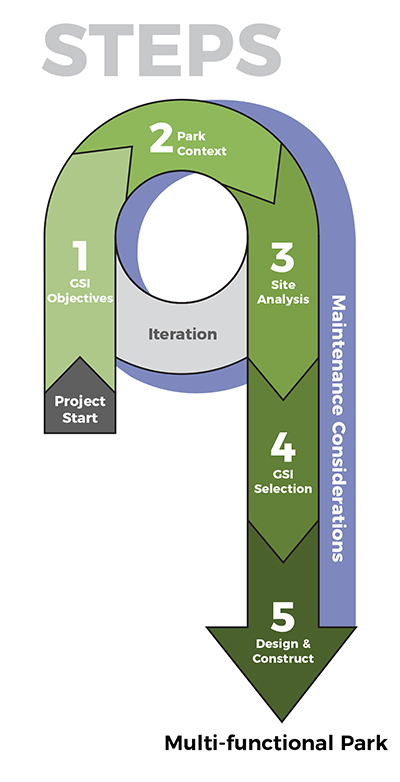
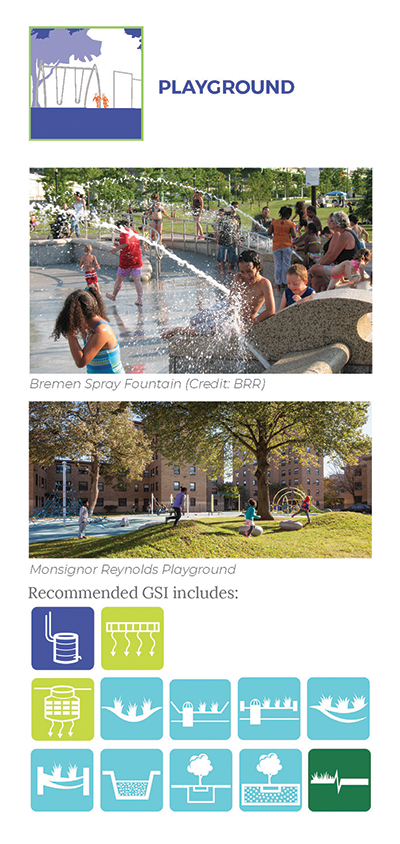

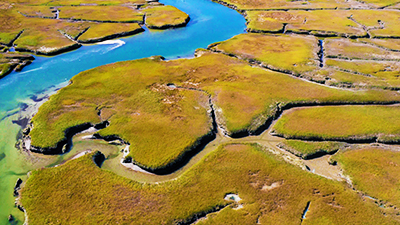 Image provided by USGS
Image provided by USGS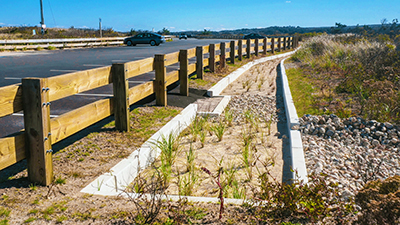 Image provided by USGS
Image provided by USGS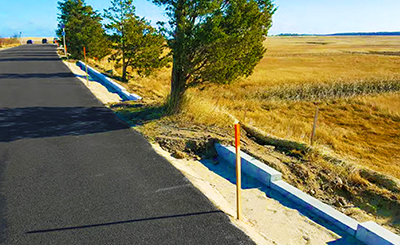
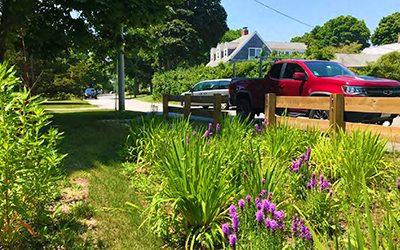
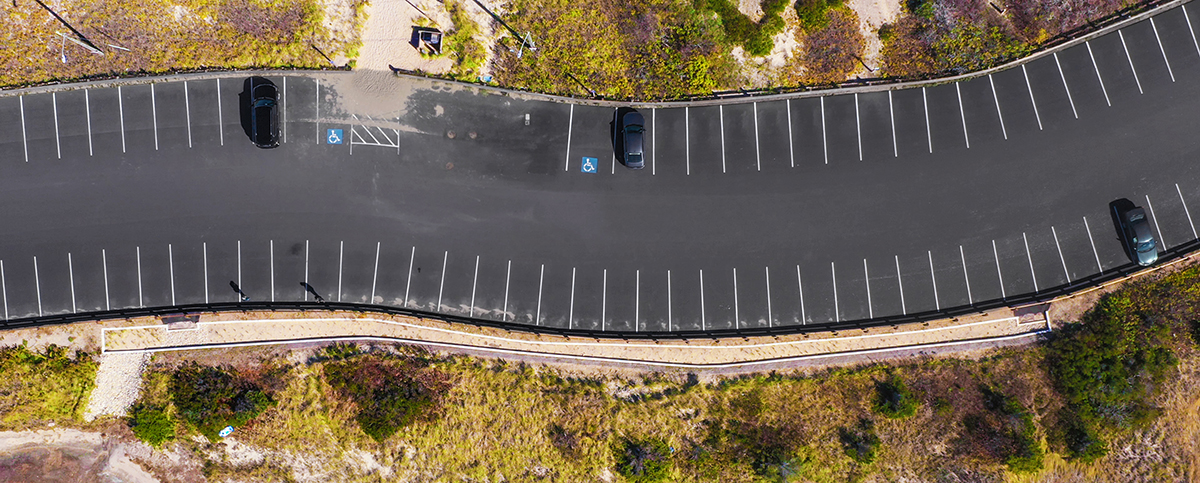 Image provided by USGS
Image provided by USGS